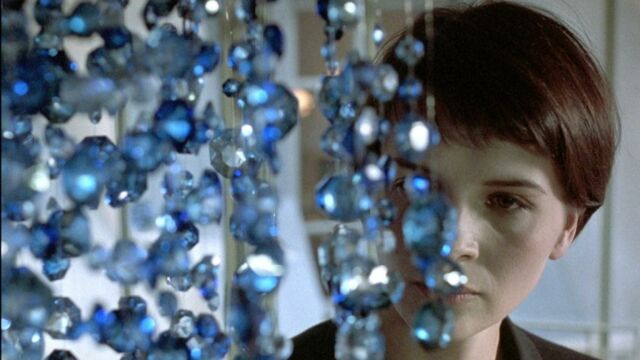What is objectophilia? Meet the woman who is in love with a chandelier

While the story of Amanda can cause people to mock her, her unusual attraction to Lumière is rooted in real medical research that links it to autism. What is objectophilia?
Recently, while scrolling on TikTok, we stumbled upon the story of Amanda. Amanda is a middle-aged woman from Leeds, England. At first glance, Amanda seems pretty ordinary but as the video continued to play we realised that this was far from the truth.
Discover our latest podcast
Indeed, Amanda is in love with a chandelier which she named Lumière. As you can imagine the video attracted thousands of comments, most of them mocking Amanda. However, when you research Amanda, who identifies as ‘objectum-sexual’, you come to terms with the fact that her story is not something to be mocked.
More under this adMore under this adAmanda is in love with Lumière
Amanda has been the subject of many videos and short documentaries. For instance, Truly met with her and released a video about her unusual love in May 2022.
In this video Amanda explains that it all started when she was younger, around 14, when she fell in love with drums. She then proceeds to explain that her attraction to objects has had phases. For instance, for a while she was really attracted to the American flag and then the Statue of Liberty.
More under this adMore under this adJust like other people would have different relationships with humans, Amanda has different relationships with objects. When it comes to Lumière, Amanda explains:
I discovered Lumière on eBay. She was in Germany. (...) I fell in love with her from the moment I saw her. Just the way she looks. The angles on her attract me. From her colour, her attitude, her energy.More under this adMore under this ad
Throughout the video, Amanda explains that ‘there’s definitely a physical attraction there’ but she shuts down any idea that people might have about sexual intercourse. However she does kiss and cuddle Lumière.
Listening to Amanda talk about Lumière, one would think that she is talking about a person.
She’s very funny. She’s excitable. She’s mature but she’s youthful as well. She has a very positive vibe. She brings out the good in me.More under this adMore under this ad
What is objectophilia?
Amanda identifies as ‘objectum-sexual’. According to a study published in 2019, people who identify as ‘objectum-sexual’
experience emotional, romantic and/or sexual feelings towards inanimate objectsMore under this adMore under this ad
The same study does highlight that this sexual identity is under studied. However, according to their report, objectophilia can be linked to autism and synaesthesia (for instance tasting colours).
But, while objectum-sexuality can be linked to these medical conditions, it appears that it is also forcing scientists to rethink what love is. In the abstract of the study, the researchers write:
More under this adMore under this adOur data speak to debates concerning the biological underpinnings of sexuality, to models of autism and synaesthesia, and to psychological and philosophical models of romantic love.
In 2021, writer Genki Ferguson wrote an article titled: Objectophilia: On the People Who Fall in Love with Inanimate Things. In his article the writer examines this sexual orientation and presents the idea that maybe it could be that ‘these cases are just the natural conclusion to the relationships the rest of us already hold.’
More under this adMore under this adFerguson’s first novel, Satellite Love, tells the story of an objectum-sexual and as he wrote the story, he researched the psychology behind it. In the article, he writes:
People love objects because they reflect what we value in ourselves.More under this adMore under this ad
In the article he also wonders if maybe, the increase in objectum-sexuals can tell a bit about our current society.
Is it so surprising, then, that these cases of objectophilia seem to have become increasingly prevalent in the modern age? A time when our true distances from each other, our inability to ever truly understand, have become all the more apparent?
Adding,
Some might call this a regression; I argue that instead, it is a process that allows us to come to a complete, deliberate understanding of the self. And perhaps, by turning that appreciation outwards, of each other too.More under this adMore under this ad
So, though Amanda may be mocked for being in love with Lumière, it still remains that Amanda is in love. Why should we mock that?
Read more:
⋙ These 5 zodiac signs are the hardest to love
⋙ These 5 zodiac signs fall in love the easiest
⋙ Astrology: Here are 6 zodiac signs that prioritise love
Sources:
Youtube: I'm In Love With A Chandelier | LOVE DON'T JUDGE
Cleveland Clinic: Synesthesia
Scientific Reports: Objectum sexuality: A sexual orientation linked with autism and synaesthesia
Literary Hub: Objectophilia: On the People Who Fall in Love with Inanimate Things